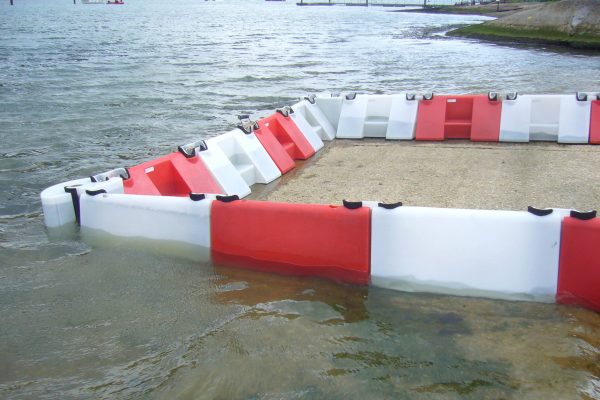In the face of increasing climate-related challenges, the need for robust and effective flood protection measures has never been more critical. One innovative solution gaining popularity is the use of water filled jersey barriers. Initially designed for traffic control, these barriers have proven to be versatile and highly efficient in providing flood defense. This article explores the benefits and applications of water-filled barriers in enhancing flood protection.
Understanding Water-Filled Jersey Barriers:
Water-filled jersey barriers are portable barricades that utilize water’s weight and stability to create a strong and secure barrier. Initially conceived for traffic management during construction or events, their adaptability has led to their application in flood control. Comprising durable materials, these barriers are easily transportable, quick to deploy, and, most importantly, effective in redirecting or containing floodwaters.
The Key Features:
Flexibility and Adaptability:
- Water-filled jersey barriers are designed to be versatile. They can be arranged in various configurations to suit the specific needs of different environments and situations. This flexibility makes them an excellent choice for urban and rural flood-prone areas.
Rapid Deployment:
- Time is often of the essence in emergencies. Water-filled jersey barriers stand out due to their swift deployment. Unlike traditional barriers that may require heavy machinery or an extensive workforce, these barriers can be set up quickly, helping to minimize the potential damage caused by rapidly rising waters.
Environmentally Friendly:
- The use of water as the main component makes these barriers environmentally friendly. The water can be quickly drained once the flood threat has passed, leaving a minimal ecological footprint. This contrasts with traditional sandbags, which can be cumbersome to dispose of and may pose environmental concerns.
Applications in Flood Protection:
Urban Flooding Mitigation:
- Quick and efficient flood protection is crucial in urban areas, where infrastructure is dense and populations are high. Jersey barriers can be strategically placed to create temporary levees or divert flood waters away from critical infrastructure, helping to safeguard communities from the devastating impact of urban flooding.
Emergency Flood Response:
- The portability and ease of deployment of water-filled jersey barriers make them invaluable for emergency flood response teams. Whether responding to flash floods or storm surges, these barriers can be rapidly deployed to protect vulnerable areas, providing an immediate defense against rising waters.
Construction Site Protection:
- Beyond their flood protection applications, these barriers continue to serve their original purpose in construction site safety. When heavy rains threaten construction zones, these barriers can be arranged to redirect water flow and prevent erosion, ensuring the safety of workers and preserving the integrity of ongoing projects.
Conclusion:
Water-filled jersey barriers represent a significant advancement in flood protection technology. Their adaptability, rapid deployment, and eco-friendly nature make them a compelling choice for various applications, from urban flood mitigation to emergency response scenarios. As climate change poses challenges, innovative solutions like these barriers offer hope for more effective and sustainable flood protection measures. Incorporating these barriers into existing flood defense strategies can contribute to building resilient communities capable of withstanding the unpredictable forces of nature.

